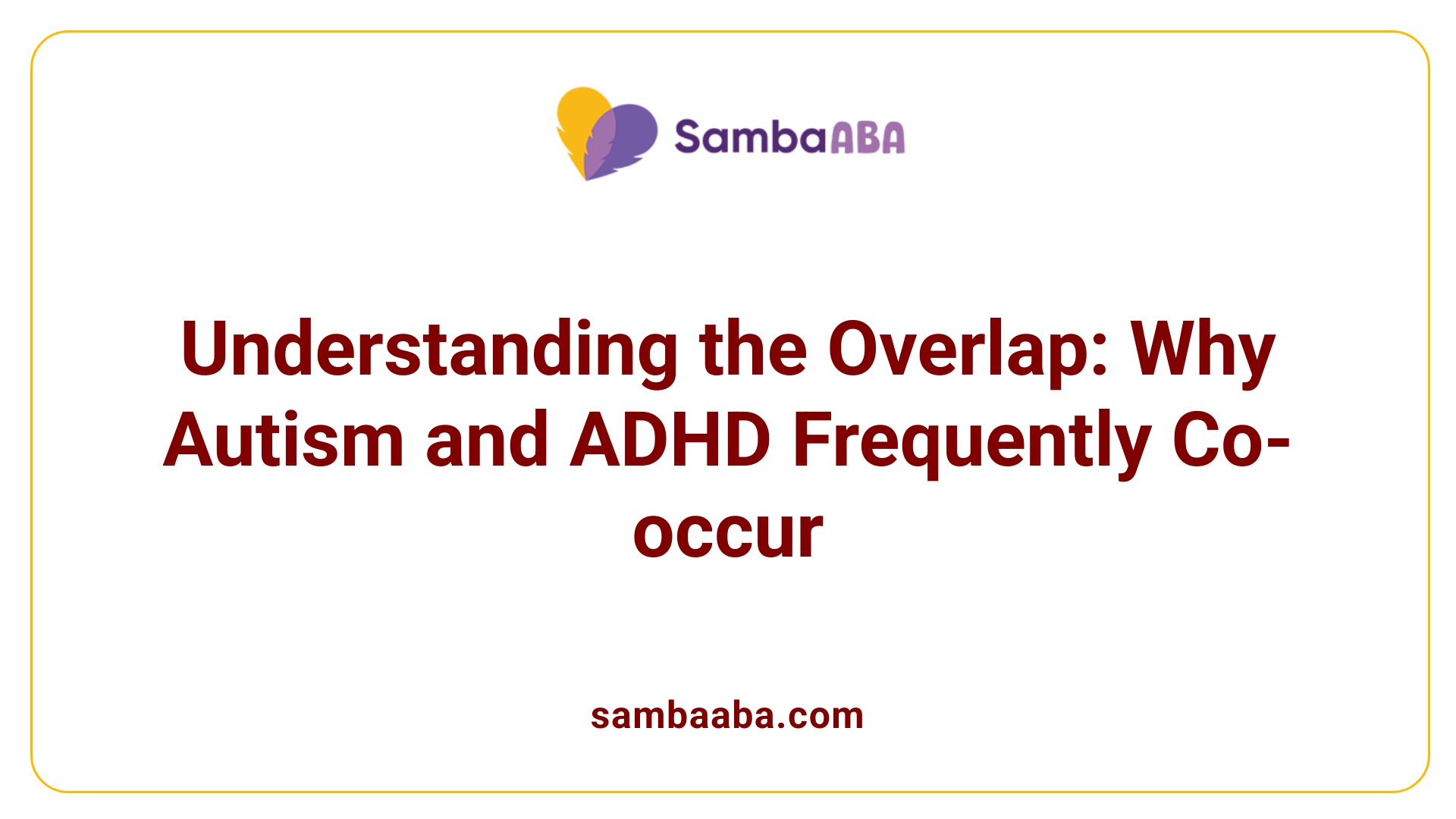Tylenol Linked to Autism & ADHD
Examining the Evidence Connecting Tylenol to Neurodevelopmental Disorders
Understanding the Current Landscape of Research on Acetaminophen and Child Development
Recent decades have seen increased scientific scrutiny of the safety of acetaminophen (Tylenol) use during pregnancy, especially regarding its potential links to autism spectrum disorder (ASD) and attention deficit hyperactivity disorder (ADHD). While some earlier studies hinted at possible associations, large-scale and methodologically rigorous research has since nuanced this understanding, highlighting the complex interplay of genetic, environmental, and medication-related factors in neurodevelopment. This article synthesizes the latest scientific evidence, addresses ongoing debates, and explores legal and health perspectives on Tylenol’s role in child neurodevelopment.
Scientific Studies and Evidence on Prenatal Acetaminophen Exposure

What scientific evidence exists regarding a link between Tylenol (acetaminophen) use during pregnancy and neurodevelopmental disorders like autism or ADHD?
Research over recent years presents a complex picture. Early observational studies, including some meta-analyses, suggested a small but notable association between prenatal acetaminophen exposure and increased risks of autism and ADHD. These studies often reported risks increasing by approximately 19% for autism and up to 34% for ADHD. However, more recent large-scale investigations, especially those employing sibling comparison designs, have challenged this link.
Swedish cohort studies involving over 2.4 million children found that initially observed associations diminished when accounting for familial and genetic factors. These sibling control analyses showed no significant increase in autism, ADHD, or intellectual disability risk attributable to acetaminophen use during pregnancy.
A 2024 study involving more than 185,000 children reinforced these findings by comparing siblings where only one was exposed to the drug. The results indicated no meaningful increase in neurodevelopmental disorders related to prenatal acetaminophen use. While some subtle effects, such as slight increases in early language delays or attention problems, have been observed, the current consensus suggests that acetaminophen, when used appropriately, does not causally contribute to neurodevelopmental conditions.
Overall, most recent evidence emphasizes that previous associations were likely confounded by underlying familial, genetic, or health factors rather than the medication itself. Nevertheless, ongoing research continues to explore sensitive periods during pregnancy and potential long-term effects.
Why do many individuals have both autism and ADHD, and what research explains this overlap?
Autism and ADHD frequently co-occur, with studies estimating that 40-70% of autistic children also meet criteria for ADHD. This overlap largely stems from shared genetics, as research suggests about half of the genetic factors influencing one condition also affect the other. Neurobiological studies support this, revealing common features related to attention regulation, executive functioning, and sensory processing.
Brain imaging and EEG work indicate overlapping neural pathways, although some differences exist. Clinically, this leads to diverse presentations, making dual diagnosis common. Recognizing this overlap has influenced diagnostic criteria, with DSM-5 explicitly allowing concurrent diagnoses, and underscores the importance of comprehensive assessment.
In sum, the high co-occurrence is rooted in both genetic and neural mechanisms, which explains why many individuals experience symptoms characteristic of both autism and ADHD.
What is known about the relationship between medications taken during pregnancy and the risk of autism?
The relationship between in utero exposure to medications and autism risk varies depending on drug class. For example, some medications like valproate have well-documented associations with increased autism risk, potentially through neurodevelopmental disruption. Conversely, for many common medications, especially antidepressants like SSRIs, research indicates that the observed links often reflect confounding factors rather than direct causation.
Recent large-scale studies, including sibling comparisons, suggest that maternal mental health conditions, rather than medications themselves, are primary contributors to autism risk. Adjusted analyses generally show no significant causal relationships between most prenatal medications and autism.
This understanding underscores that health management during pregnancy should prioritize maternal well-being, and medication use should be tailored to individual health needs, with ongoing research continually refining the safety profiles of various drugs.
Are there known health risks associated with using Tylenol in relation to neurodevelopmental conditions?
While some early animal studies and observational data hinted at potential neurotoxicity from acetaminophen, human research has largely not substantiated these concerns. Recent extensive studies, including the 2024 Swedish cohort, demonstrate that when used as directed, Tylenol does not substantially increase the risk of autism, ADHD, or intellectual disabilities.
Mechanisms such as oxidative stress and neuronal damage observed in laboratory settings have not translated into clear causal effects in humans. The absence of consistent evidence from sibling comparison studies and population cohorts indicates that typical maternal use of acetaminophen during pregnancy is safe.
Nonetheless, research continues to monitor potential subtle or long-term effects, emphasizing cautious use and the importance of consulting healthcare providers. Current regulatory guidance supports its safe use for managing fever and pain during pregnancy, highlighting that its benefits often outweigh potential risks. Overall, the evidence suggests that acetaminophen remains a generally safe medication for pregnant women when used responsibly, though ongoing studies seek to clarify any remaining uncertainties.
Legal and Medical Updates on Tylenol and Developmental Risks

Number of lawsuits and legal claims
There have been numerous legal cases and claims filed over concerns that Tylenol (acetaminophen) use during pregnancy may be linked to neurodevelopmental disorders such as autism and ADHD. Currently, over 100 lawsuits are active nationwide, many of which allege that manufacturers failed to warn consumers, particularly pregnant women, about the potential risks of prenatal exposure.
These cases have often been consolidated into larger multidistrict litigations (MDLs), notably in New York. Plaintiffs in these lawsuits argue that prenatal Tylenol exposure contributed to their children’s diagnoses of autism spectrum disorder (ASD) or ADHD.
While these claims are based partly on observational and epidemiological studies showing associations, they have not yet resulted in definitive legal rulings establishing causation. Nonetheless, the volume and intensity of these suits reflect significant concern and ongoing debate about drug safety during pregnancy.
Claims about warnings and manufacturer responsibility
Many of the legal claims revolve around accusations that acetaminophen manufacturers did not adequately warn users about the possible risks linked to prenatal exposure. Plaintiffs allege that warnings were insufficient given the emerging research indicating potential developmental risks.
These claims highlight the importance of informed consent and the duty of pharmaceutical companies to update product labeling and safety information based on new scientific evidence. Currently, the manufacturers maintain that Tylenol has been safely used during pregnancy when taken as directed, and there is no conclusive proof of causality.
Impact of scientific studies on legal cases
Several recent large-scale scientific studies have contributed to the legal landscape. Notably, extensive cohort studies in Sweden and the Boston Birth Cohort have examined the association between prenatal acetaminophen exposure and risks of autism and ADHD.
Some studies, like the Boston study, found that higher fetal exposure—measured via biomarkers in umbilical cord blood—was associated with increased risks of neurodevelopmental disorders. Conversely, sibling-controlled studies in Sweden did not find significant evidence linking Tylenol use during pregnancy to autism or ADHD, suggesting potential confounding factors in earlier observational research.
This mix of findings influences legal arguments, as plaintiffs cite studies indicating potential risks, while defendants highlight research that questions causality, emphasizing environmental and familial factors instead.
Recommendations from health authorities
Despite ongoing research and legal debates, health authorities such as the U.S. Food and Drug Administration (FDA) and the Centers for Disease Control and Prevention (CDC) advise cautious use of acetaminophen during pregnancy. They acknowledge that evidence of harm remains inconclusive but emphasize that untreated fevers—associated with increased autism risk—should be managed appropriately.
Current guidance recommends pregnant women use the lowest effective dose of acetaminophen for the shortest necessary duration, ideally under medical supervision. Experts highlight that when used responsibly, Tylenol’s benefits for pain and fever relief generally outweigh potential risks.
Ongoing research and legal developments continue to shape public health advice, prompting updates to guidelines as more evidence becomes available.
| Aspect | Details | Additional Notes |
|---|---|---|
| Number of lawsuits | Over 100 active legal claims | Filed across multiple states and consolidated into MDLs |
| Manufacturer responsibilities | Alleged failure to warn, inadequate labeling | Ongoing debates about liability and scientific evidence |
| Scientific influence | Studies showing both association and non-causality | Shape legal arguments and public perception |
| Health authority guidance | Use with caution, lowest effective dose, short duration | Balances benefits and potential risks |
Balancing Evidence and Caution in Tylenol Use During Pregnancy
While recent research largely supports the safety of acetaminophen when used appropriately during pregnancy, ongoing scientific investigations continue to refine our understanding of potential neurodevelopmental impacts. Legal actions and public debates reflect the importance of transparency, research, and tailored medical advice. Healthcare providers and expectant mothers should remain informed about the latest findings and guidelines, recognizing that current evidence does not establish a definitive causal relationship between Tylenol use and autism or ADHD. As science advances, measures to ensure safe medication practices will help balance effective symptom management with neurodevelopmental safety, fostering trust and safeguarding future generations.
References
- NIH-funded study suggests acetaminophen exposure in pregnancy ...
- Taking Tylenol during pregnancy associated with elevated risks for ...
- Acetaminophen Use During Pregnancy and Children's Risk of ...
- No link between acetaminophen use during pregnancy and ...
- Acetaminophen during pregnancy not associated with ADHD or ...
- Can You Take Acetaminophen While Pregnant?
- Study refutes link between acetaminophen use in pregnancy and ...
- Association of Cord Plasma Biomarkers of In Utero Acetaminophen ...
- Prenatal and postnatal exposure to acetaminophen in relation to ...
